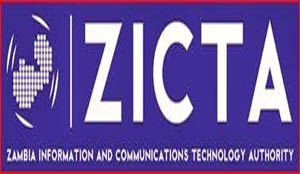EVERYONE communicates, be it within or outside the country usually on a day to day basis.
The communication is done on hand held devices or through the postal service.
As a result of the need for communication, postal services play an important role not only on people’s lives but also in the lives of institutions.
However, many people may wonder whether any security measures have been put in place to try and protect the mailing processes.
It is with this in mind that Zambia Information Communications Authority (ZICTA), together with the Zambia Bureau of Standards (ZABS), and the Zambia Revenue Authority (ZRA), have come up with a mechanism which is specifically structured to cater for postal security. ZICTA Licensing and Postal Officer Brian Mwansa said licences will be given to various couriers in the country to enable them know their security status in postal activities.
He said the mechanism put in place to step up postal security was in line with a new law that has been put in place under the Postal Services Act 2009 – section 4(2), and has just recently been Jump-started.
Mr Mwansa said enhancing postal security was a very sensitive and cautious matter as it bordered on threats to local and international security.
“Postal security is very crucial in all lands around the world, and this is not a small issue to be taken lightly. The high levels of threats involved tend to leave a nation contemplating on what could be sent and what is being received,” he said.
Mr Mwansa revealed that the Zambia Bureau of Standards had come up with specific security standards in acting as a guide to enhance postal security in various courier companies.
He said among these standards was the importance of upholding access control, security risk assessment planning, mail screening exemptions, identification systems as well as security awareness and training within courier organisations.
He said a risk was only a security threat if a company did not know what was being sent, from where, and when it was being received, which could pave way to the flow of many dangerous materials.
“You find that most of these courier companies might not know what is being sent or from where, even including information relating to when the package was sent. This tends to become a security risk as we might receive unwanted dangerous chemicals or material in our country,” he said.
The initiative to ramp up postal services security is in line with an experience relating to what has become commonly known as the Yemen bomb package which was intercepted at an international airport in the United Kingdom (UK) in 2010 which had come from a suspected terrorist organisation.
This sparked security fears and officials in the UK and Dubai moved in to thwart the alleged attempt to send explosive material hidden in printer ink cartridges by air from Yemen to the United States (US).
The incidence made the UK government’s emergency planning committee to immediately restrict sending of any form of mail and cargo from Yemen.
This incident goes to show the great need for Zambian courier companies to ensure that proper identification systems are implemented
coupled with mail screening exemptions regarding all packages intended to go in and out of the country.
Mr Mwansa said hiring of staff could contribute towards corruption activities within a company which might lead to suspicious packages being processed.
He said if a company was to uphold its high professional standards towards postal security, it was mandatory that every mail handler provides documents qualifying him or her for the task, coupled with a background screening.
“We shouldn’t underestimate our staff in this regard, as they may also be a contributing factor to suspicious activities which could lead to unwanted mail being transited. That is why it is very important for a courier company to run background screening to ensure no criminal record or other suspicious precedents reflect on staff being employed.
Proper documents are important when hiring people to deal with mail packages. Once proper documents certify the individual, then it would be safe for a company to finalise the hiring,” he said.
Mr Mwansa said that the new mechanism of postal security will require that necessary measures are taken by ZICTA to facilitate training for staff to better enable them handle various mail.
“There is always need to better equip staff with the task at hand, which is why ZICTA will facilitate training to enhance their ability so that they know how to handle various mail packages including dangerous goods.
“This training scheduled for 2016 will ensure that customs at Zambia’s airports are also catered for as this will broaden their level of responsibility towards postal security,” he said.
As postal activities buzz on, it is crucial that ZICTA and other relevant bodies endeavour to provide safe measures for ensuring the security of the postal services.







